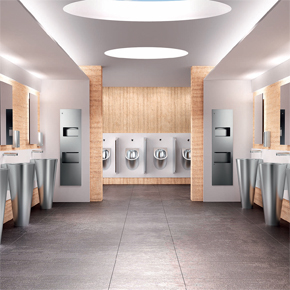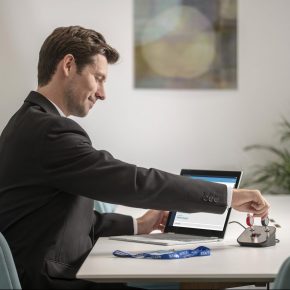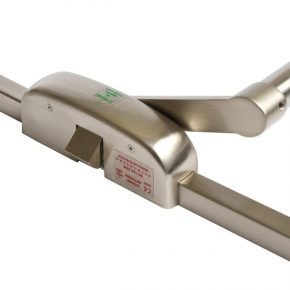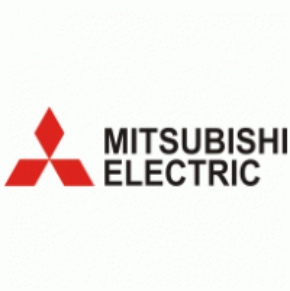
Sustainable solutions for commercial washrooms
Controlling water consumption in commercial environments is a challenge, especially in washroom facilities subject to intensive use. In the July 2016 issue of ABC+D Magazine, DELABIE, European specialist in tapware and sanitary accessories, guides us towards the most sustainable solutions…
It is important to avoid wastage, manage consumption and prevent misuse. Specifying electronic water controls can contribute to water and energy savings and, since they are easy to install, service and maintain, they also contribute to sustainability in public washrooms.
Avoiding waste
Electronic taps avoid unnecessary waste; they activate only when the user is detected, and shut off when that presence is no longer detected. Since the taps only operate when wetting and rinsing, water savings are achieved thanks to a split delivery.
Flow rate limiters are a popular solution for saving water. A restrictor narrows the outlet and delivers a reduced flow rate, however, the flow rate will vary according to the pressure available. To ensure a constant flow rate, DELABIE recommends mixers with flow rate regulators that automatically adjust to pressure variations.
If combined with a mixer featuring an adjustable flow straightener, the installer can adjust the flow straightener to achieve water efficiency standards – e.g. 3L/min – and the regulator will ensure a constant flow rate and user comfort.
Saving energy
Reducing water consumption also impacts energy consumption. If less hot water is used, less energy is required. However, the electronic technology used also has an impact. Infrared active pulse technology is a low power consumption solution.
An infrared beam is emitted intermittently, saving energy, while a sensor located at the end of the spout ensures effective user detection. Depending on usage levels, Lithium battery-operated electronic taps can operate for 350,000 cycles i.e. 3-6 years. Lithium batteries are widely available, affordable and recyclable.
Preventing misuse
Public washrooms can succumb to voluntary and involuntary misuse through lack of understanding and wilful abuse. To withstand regular misuse, electronic taps must feature shock-resistant mechanisms and sensors, housed in a solid brass body.
DELABIE also recommends taps with anti-blocking, where no water is delivered if the sensor is permanently covered, preventing wastage through deliberate abuse.
Saving time
Battery-operated taps are easy to install since the electronic unit and battery are integrated in the body of the tap. Installed in the same way as mechanical taps, no electrical connection is required, only hydraulic, making them suitable for refurbishment projects. When hands are first presented to the sensor, the detection distance sets itself automatically, and no additional adjustment is required.
If mains supply is preferred, consider a pre-programmed electronic unit where adjustments are kept to a minimum, saving time during installation.
Long-term sustainability
Taps that require minimal maintenance are more sustainable in the long term. Specifiers should consider installation and servicing requirements such as standardised parts and self-cleaning materials.
For example, certain flow straighteners minimise scale and dirt build-up, are easier to clean and need replacing less frequently. Maintenance for electronic taps can be less onerous than for mechanical taps if the mechanism, solenoid valve and battery are integrated within the body, and can be easily accessed without isolating the water supply.
Battery operated taps are also suitable for refurbishment projects.
Improved hygiene and water quality
Electronic controls provide the additional benefits of hygiene and ease-of-use. Since no manual contact is required, any user can activate them, regardless of age or dexterity. Also, the transfer of dirt and germs is minimised since there is no contact before, during or after washing – the perfect solution for healthcare applications. However, there is a further hygiene benefit with implications for the whole system – an automatic duty flush.
If unused for prolonged periods (e.g. school holidays), water stagnates in the pipework and increases the risk of bacterial development. An electronic tap, installed at the furthest point on a pipe run, prevents stagnation by flushing automatically for approximately 60 seconds every 24 hours after the last use.
There is no need for manual intervention and a preventative duty flush avoids a curative chemical treatment or thermal shock which can be labour intensive and requires the system to be closed to the public.
To achieve sustainability in commercial washrooms, the facilities team must be able to deliver more than just savings. Specifying taps that are easy to install, require minimal servicing and that operate safely and independently for prolonged periods will save time and resources. Moreover, electronic controls can significantly help reduce waste, control consumption and also contribute to good system hygiene.
Latest news

18th April 2024
Abloy UK showcases new digital portfolio at The Security Event 2024
Abloy UK is set to unveil its latest line-up of access control systems at The Security Event 2024, welcoming guests to explore its cutting-edge electromechanical and digital solutions on stand 5/F50.
Posted in Access Control & Door Entry Systems, Architectural Ironmongery, Articles, Building Industry Events, Building Industry News, Building Products & Structures, Building Services, Doors, Exhibitions and Conferences, Facility Management & Building Services, Health & Safety, Information Technology, Retrofit & Renovation, Security and Fire Protection
18th April 2024
Strand is a Failsafe Choice for Emergency Exit and Panic Hardware
In times of emergency, you’re in safe hands with Strand Hardware. Although there are many considerations for building specification, few decisions can be as critical as selecting the right emergency exit/panic hardware.
Posted in Access Control & Door Entry Systems, Architectural Ironmongery, Articles, Building Industry News, Building Products & Structures, Building Services, Doors, Facility Management & Building Services, Health & Safety, Restoration & Refurbishment, Retrofit & Renovation, Security and Fire Protection
18th April 2024
MRA appoints Callum Budd as Research Projects Director
MRA Research, the research agency focused solely on the construction sector, welcomes Callum Budd as its new Research Projects Director.
Posted in Articles, Building Industry News, Information Technology, news, Recruitment, Research & Materials Testing
16th April 2024
Mitsubishi Electric set to host CIBSE Journal webinar
Mitsubishi Electric will host a CIBSE Journal webinar on Wednesday 24th April 2024 at 1pm to discuss the legislation and initiatives driving changes in the way we will need to heat, cool and ventilate large commercial buildings to reach net zero emissions in the UK.
Posted in Air Conditioning, Articles, Building Industry Events, Building Industry News, Building Products & Structures, Building Regulations & Accreditations, Building Services, Facility Management & Building Services, Heating Systems, Controls and Management, Heating, Ventilation and Air Conditioning - HVAC, Information Technology, Pipes & Fittings, Plumbing, Seminars, Sustainability & Energy Efficiency, Training
 Sign up:
Sign up: